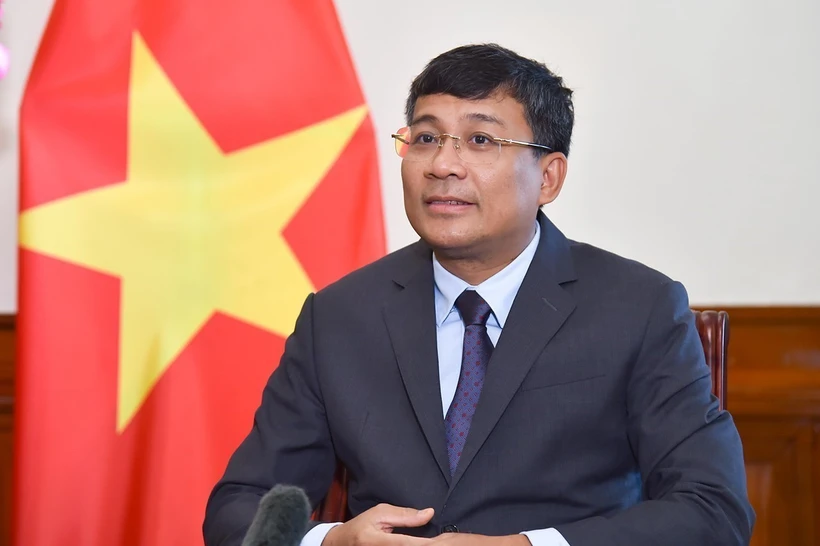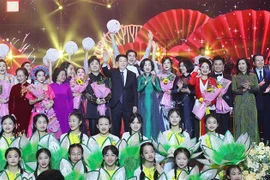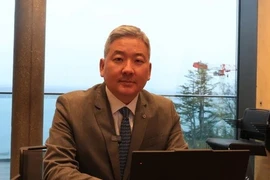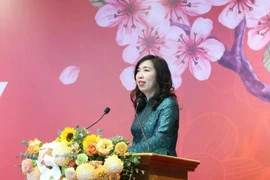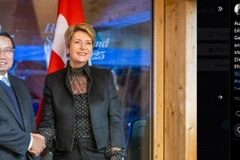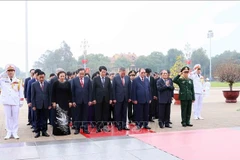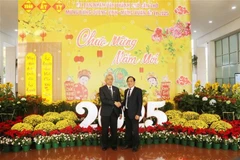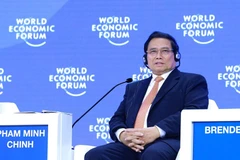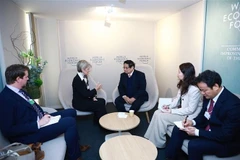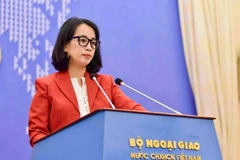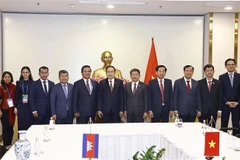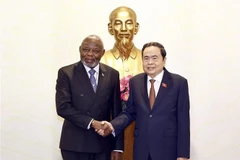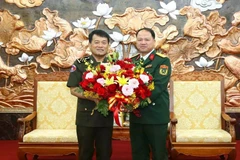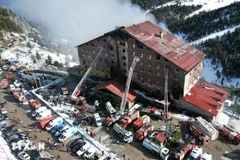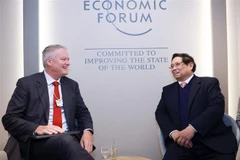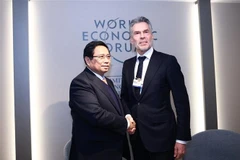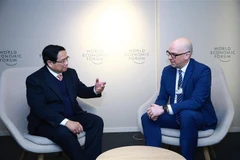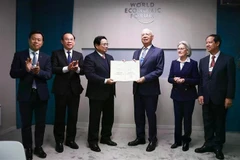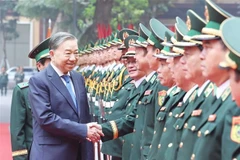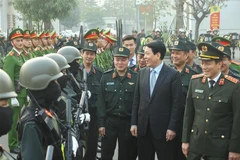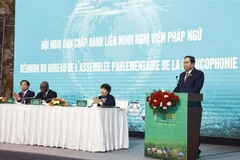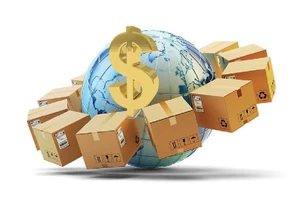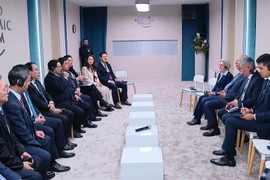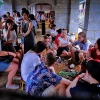Hanoi (VNA) - Standing Deputy Minister of Foreign Affairs Nguyen Minh Vu has written an article titled “Looking back at the world in 2024 and forecasts for 2025,” stressing the need for Vietnam to steadfastly pursue its foreign policy of independence, self-reliance, peace, cooperation, development, multilateralisation and diversification of foreign relations; and remain prepared for complex global situations.
The World in 2024: Fluctuations and concerns
In 2024, the world witnessed significant and complex upheavals in security, politics, technology, and the environment, with a prevailing sense of apprehension across many nations and regions. Firstly, the international security environment experienced dramatic shifts, carrying significant risks. The year 2024 saw the sharpest increase in the number of armed conflicts worldwide since World War II, with a total of more than 120 conflicts involving over 60 countries.
Secondly, domestic affairs in many countries underwent significant turbulence. 2024 was regarded as a “super election” year, with over 70 countries - representing approximately half of the world’s population - holding presidential, parliamentary, or local elections. Newly elected administrations faced various complex domestic challenges, including socio-economic and environmental issues, as well as opposition from rival political forces.
Thirdly, multilateral mechanisms continued striving to assert their role in addressing international issues. In 2024, the United Nations achieved significant milestones, including introducing key documents at the Summit of the Future, passing three resolutions on artificial intelligence, reaching consensus on carbon credit quality standards at the 29th UN Climate Change Conference (COP29), and finalising a convention against cybercrime after years of negotiation. These efforts have advanced multilateralism and international law in tackling global challenges. However, multilateral mechanisms still face numerous obstacles and deadlocks in solving regional conflicts and mobilising collective will and resources to address global security issues, Vu wrote.
Fourthly, global issues became more interconnected, complex, and unprecedented. 2024 became the hottest year on record, with Earth's temperature temporarily surpassing 1.5 degree Celsius above pre-industrial levels for the first time. The year also saw numerous natural disasters causing catastrophic consequences in many countries across America, Africa, Asia, and Europe. The risk of an energy crisis increased, as new technologies, particularly artificial intelligence, continue to consume large amounts of energy, leading many countries to reconsider nuclear energy projects.
Meanwhile, the growth and aging of the global population shifted the balance of global power, driving international migration and reducing resources for security and development. The COVID-19 pandemic continued to leave severe consequences, while the world still faced the risk of other pandemics with the emergence of various viruses that are highly virulent or capable of rapid transmission, such as Marburg, Nipah, Dengue, Ebola, or Disease X. Other security challenges, such as food security, water security, illegal migration, and transnational crime, have also evolved with new complexities, intertwining with one another, leading to increasingly severe and widespread consequences, he added.
The World in 2025: Challenges and expectations
The official forecast that the world will face new upheavals this year. Firstly, the strategic competition between major powers is likely to enter a more tense and comprehensive phase. This competition is expected to encompass all areas of international relations, with a particular focus on economic, technological, and diplomatic sectors; and even expand into new domains and spaces such as the Arctic, outer space, and the deep sea.
Secondly, some old flashpoints may experience reduced tensions, while new hotspots could emerge.
Thirdly, Vu assessed that the global economy may maintain its growth trajectory but will face numerous challenges. Global GDP in 2024 is forecast to increase by 3.2%, higher than in 2023 and above the predictions made at the end of 2023. A similar growth rate is anticipated for 2025. However, it will depend on political stability and the ability of countries to take advantage of technology to boost labour productivity. The trend of fragmentation and adjustment of global supply chains will continue, amidst increasing competition among major powers.
Fourthly, the 4.0 technology revolution will bring about remarkable achievements, as advancements in individual fields such as artificial intelligence, digital transformation, energy transition, quantum computing, health care, and space technology become increasingly intertwined and integrated. The international community will face an increasing need to balance harnessing technological advancements for development and establishing governance mechanisms to ensure these innovations do not have negative impacts on security, human rights, and social ethics. Meanwhile, developing countries that fail to adapt to technological trends risk falling further behind.
Fifthly, the Asia-Pacific region will continue to be the centre of global development, home to many of the world’s largest and fastest-growing economies. However, the region still faces many latent conflicts due to complex situations in the Democratic People’s Republic of Korea, Taiwan (China), the East Sea, Myanmar, and others. The Asia-Pacific will witness intense competition among major powers striving for higher position and influence. ASEAN, under Malaysia's chairmanship in 2025, will work to strengthen its central role, while other regional multilateral mechanisms and linkages will occur and be reinforced.
Vietnam at the threshold of 2025
According to the deputy minister, entering 2025, Vietnam faces both opportunities and challenges. On the challenge front, Vietnam may encounter more difficulties in managing relations with major powers, new complexities may arise in surrounding hotspots, and the country will be more strongly impacted by global issues and new security concerns, particularly when these issues are downplayed by major powers.
On the opportunity side, it has a chance to make rapid strides thanks to the new technological achievements worldwide, deepen relationships with all parties, diversify export markets, and play a more responsible role in addressing global common concerns.
In this context and to commemorate 80 years of independence along with other significant celebrations in 2025, under the absolute and comprehensive leadership of the Party, Vietnam needs to continue steadfastly pursuing its foreign policy of independence, self-reliance, peace, cooperation, development, multilateralisation and diversification of foreign relations; and remain prepared for the complex situations arising from global developments.
Vu recommends the country enhance domestic production capacity and diversify export markets; take measures to attract investment in strategic technology sectors; continue to rely on multilateral mechanisms to amplify its voice; identify areas and issues where Vietnam has strengths to promote them within multilateral frameworks; and keep a close watch on the situation to make appropriate adjustments in the face of a world experiencing complex and unpredictable changes.
The year 2025 is forecast to be a year of significant and complex upheavals; however, there will still be opportunities and prospects for cooperation. Dialogue and international collaboration remain a major trend, the global economy will continue its growth momentum, and multilateral mechanisms see opportunities for reform to move toward more effective global governance. These will be important foundations for Vietnam to seize opportunities, transform challenges into development drivers, and confidently step into a new era—the era of the nation's rise, the official wrote./.
